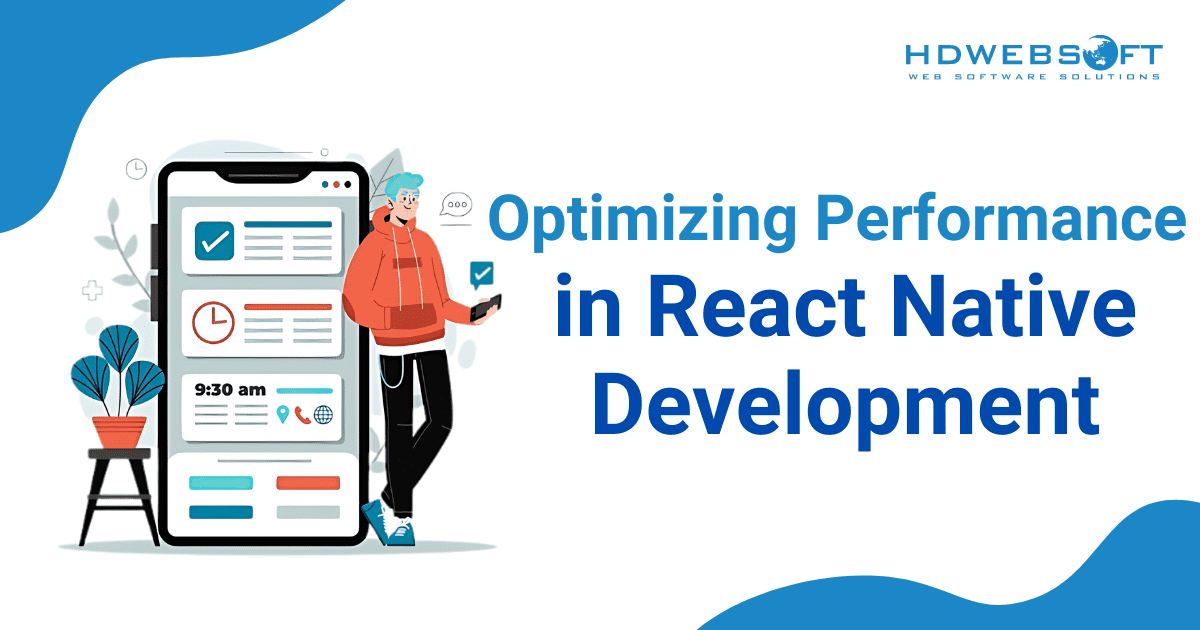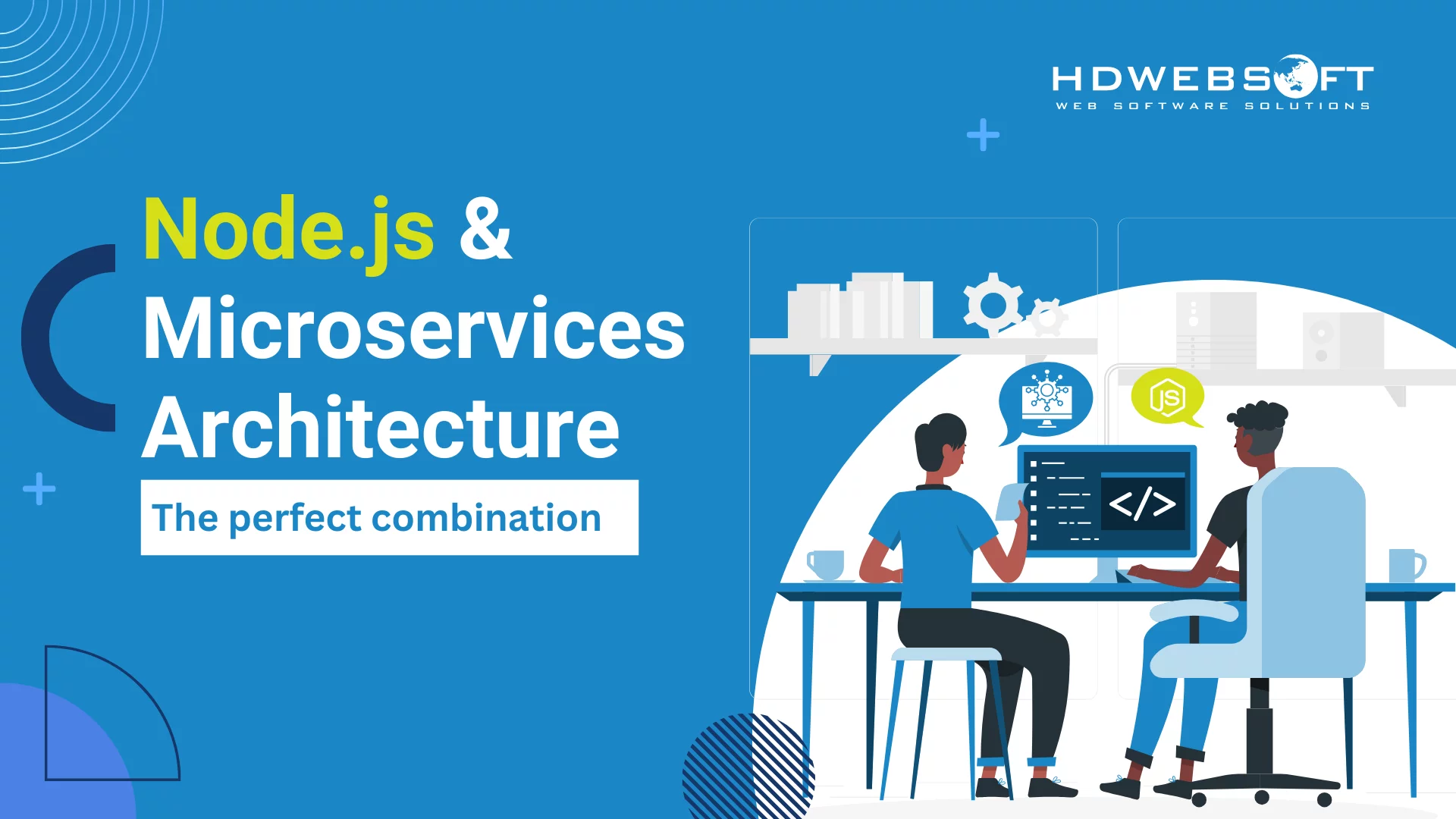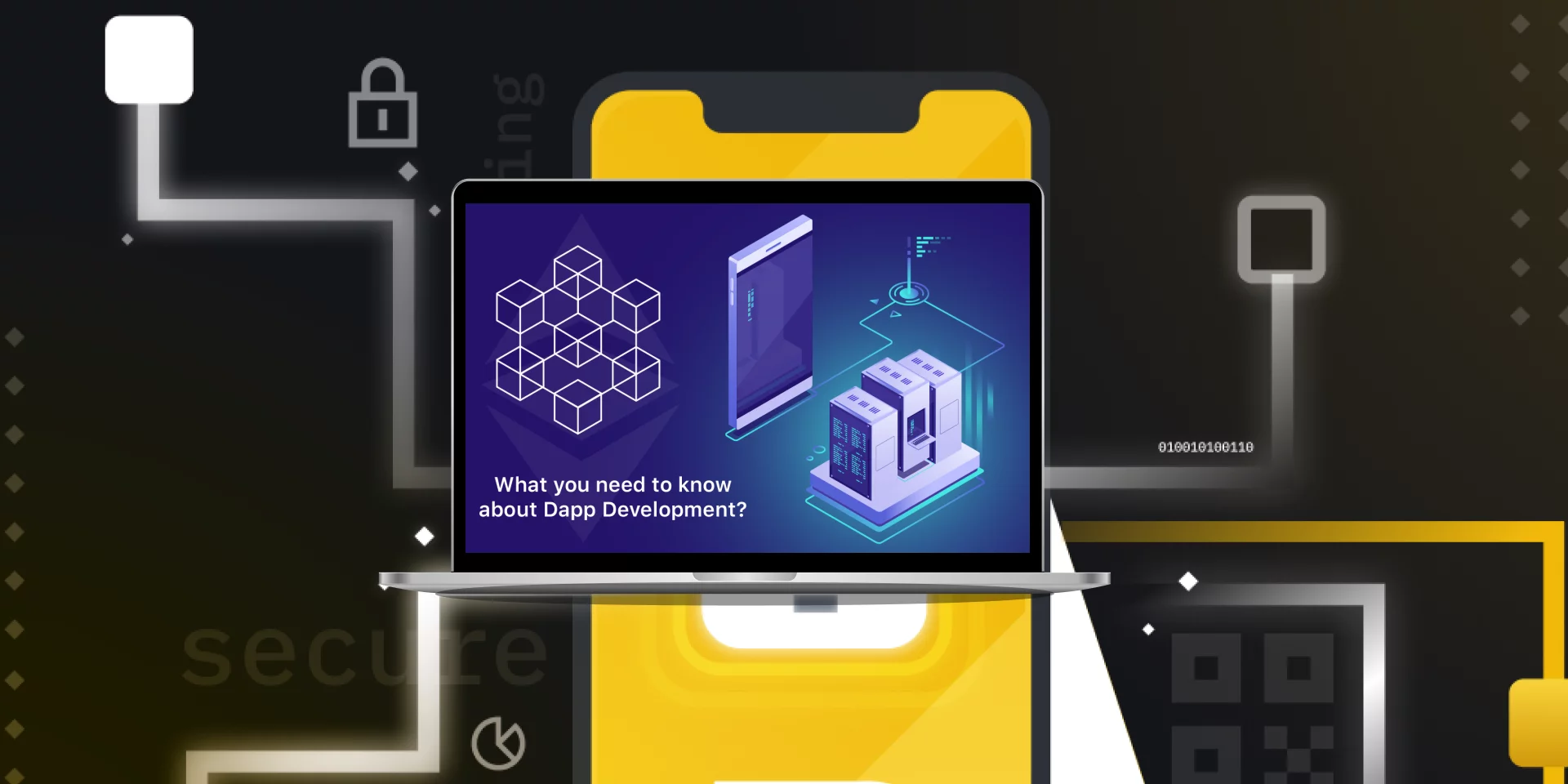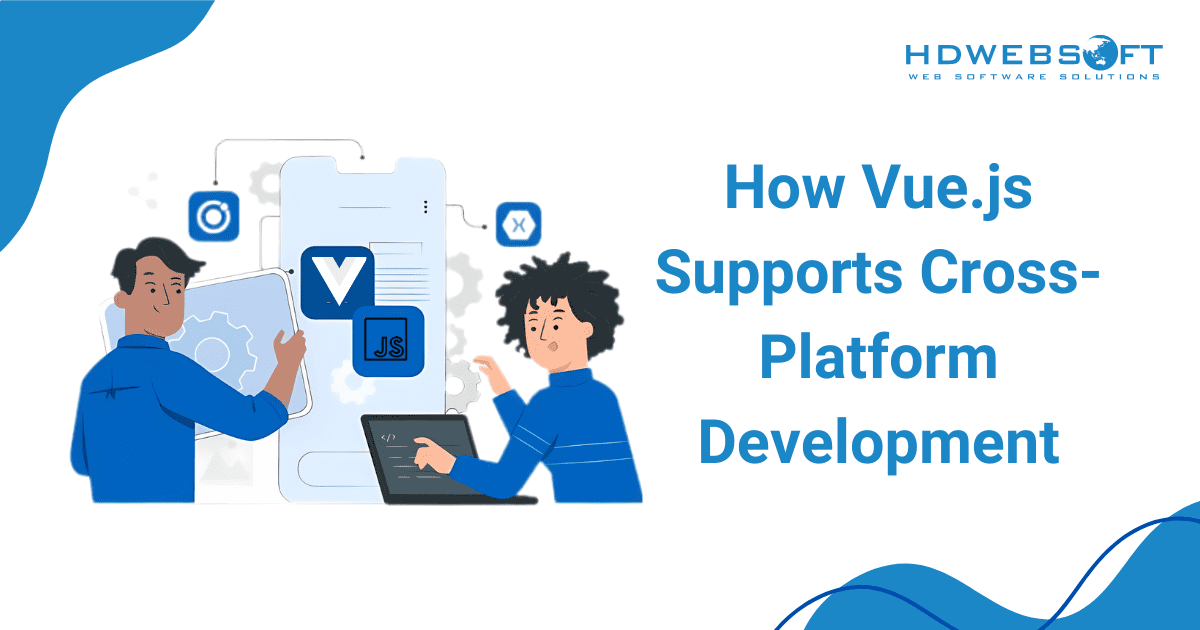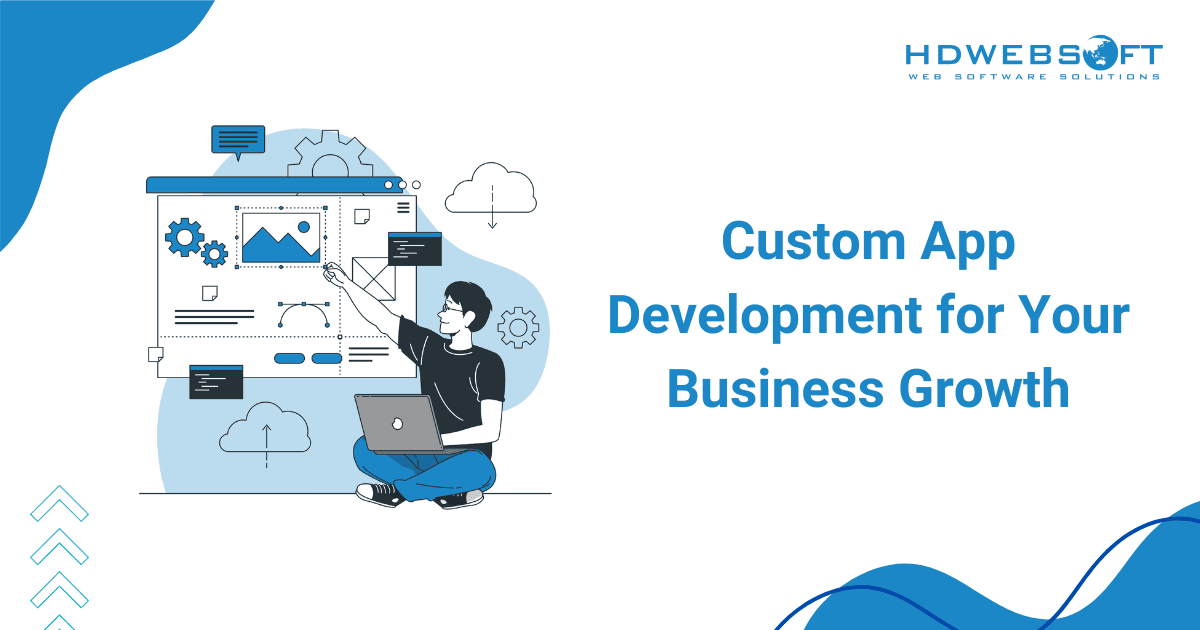
Custom App Development for Your Business Growth
Custom app development is rapidly becoming the cornerstone of business innovation. Companies across industries are seeking tailored software solutions that address their unique operational challenges and strategic goals. By offering unmatched flexibility, scalability, and efficiency, custom applications empower businesses to stand out in today’s competitive landscape.
This article will explore what custom app development entails and how it compares to conventional software solutions. Additionally, we’ll highlight best practices, budget considerations, and key factors that contribute to the success of a custom application.
What is Custom App Development?
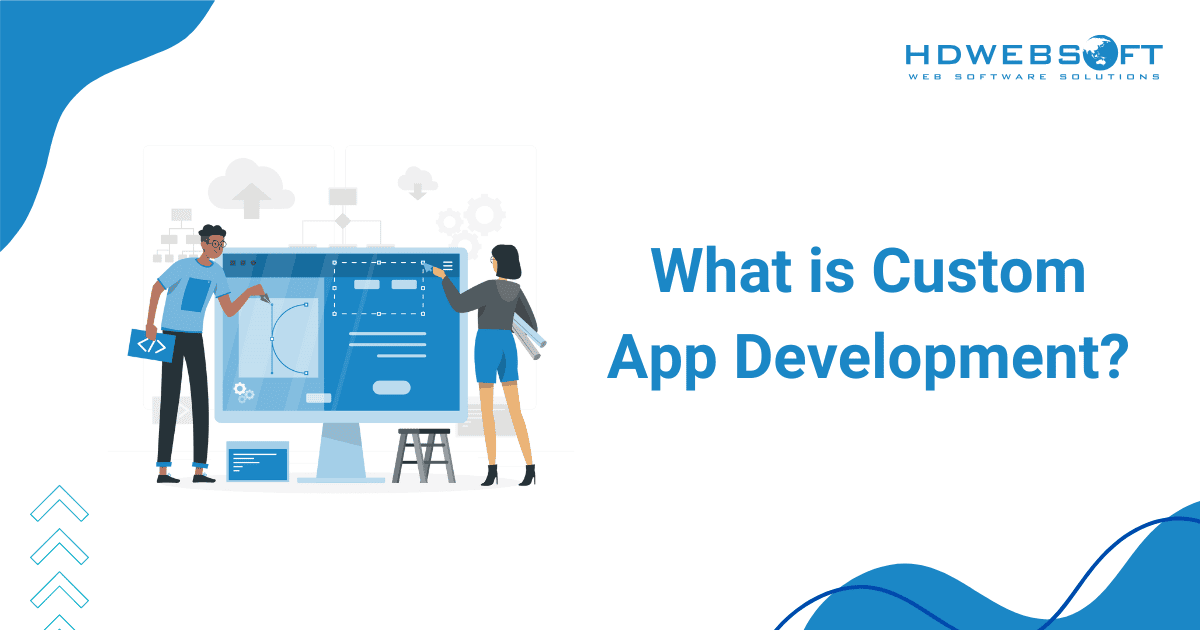
For starters, custom app development involves creating software applications specifically tailored to meet the unique needs of a particular organization or user base. Unlike off-the-shelf solutions, which offer generalized functionalities, custom applications are designed to address specific challenges, streamline processes, and enhance overall efficiency within a business.
The custom software development market has experienced significant growth in recent years. In 2023, the global market size was estimated at $36.6 billion. With its continued popularity, the market is projected to grow at a CAGR of 22% from 2023 to 2028.
Characteristics That Make Custom App Development Popular
Several key features contribute to the rising popularity of custom app development:
- Designed to cater to both external and internal applications. For external purposes, you can develop apps tailored to e-commerce, gaming, or educational platforms. Internally, custom business applications can address needs like customer relationship management, production tracking, or time management.
- Built using various programming languages such as Java, C#, and Python. Popular frameworks for custom app development include React, Angular, Vue.js, and .NET Core.
- Focused on incorporating essential features tailored to unique requirements rather than relying on generic software solutions.
- Specifically created for the commissioning organization or client, ensuring exclusivity and not being available to the broader market.
- Versatile in functionality, aiding businesses in automating workflows, analyzing data, and improving customer relationship management.
- Offering enhanced customization, flexibility, and scalability to tackle specialized challenges effectively.
What is Custom Web App Development?
As a subcategory of custom app development, custom web app focuses on creating web-based applications tailored to an organization’s needs. These applications are accessible through web browsers and can range from simple websites to complex platforms.
The primary advantage of custom web apps lies in their accessibility across various devices. Moreover, they do not require separate installations, which ensures a consistent user experience. Regardless of the user’s location or device, these apps deliver seamless functionality.
What is Custom Mobile App Development?
Meanwhile, custom mobile app development involves designing applications specifically for mobile devices. These apps can be developed for various platforms, including iOS and Android. Frequently, they are utilized to provide users with on-the-go access to services.
In addition, they play a significant role in enhancing customer engagement. They can improve internal business processes efficiently. The customization ensures that the app’s functionality, design, and performance align perfectly with the intended use case and audience.
Conventional vs Custom App Development
Software development can be approached in three primary ways: no-code, low-code, and custom development. While no-code and low-code methods are often classified as prebuilt solutions, custom app development offers tailor-made applications designed to meet specific requirements. Here’s an overview of how these approaches function:
No-code development
This approach eliminates the need for programming knowledge. Platforms like Airtable and Appy Pie enable users to create apps through intuitive drag-and-drop tools. Ideal for basic applications with minimal complexity, no-code solutions are excellent for quickly launching projects that don’t require advanced functionality.
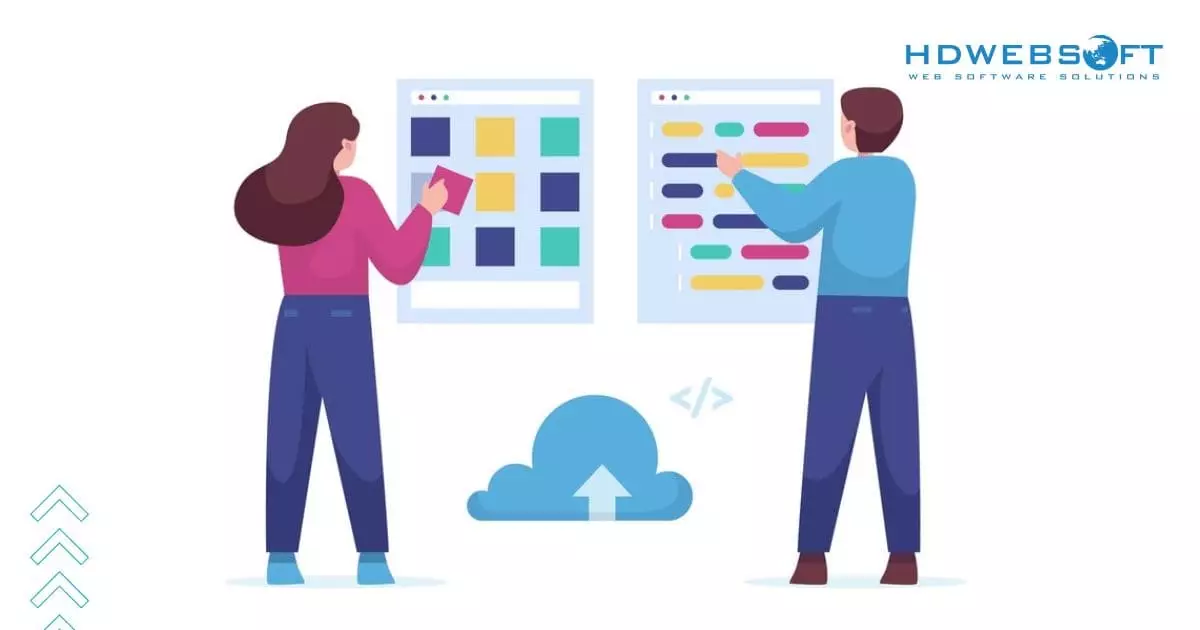
No-code custom app development means no need for coding, just drag and drop then you have an app ready.
Low-code development
This method combines simplicity with some degree of customization. While low-code platforms also rely on drag-and-drop interfaces, they allow for minor tweaks, such as modifying layouts or designs.
This approach finds a middle ground between ease of use and adaptability. As a result, it is particularly suitable for businesses that require apps with limited personalization to fulfill their operational needs.
Custom application development
Unlike the other methods, custom software development requires advanced programming expertise. This approach enables you to define and implement specific features to craft a fully customized and scalable app.
Ideally, partnering with a custom app development company can accelerate the process, providing access to experienced professionals. Custom apps are designed to align perfectly with business objectives. Therefore, it can be updated or expanded to adapt to changing requirements or market trends.
The Benefits of Custom Application Development
In a world driven by digital transformation, businesses are constantly seeking solutions that fit their unique requirements. Unlike off-the-shelf applications, custom solutions are designed from the ground up, with your specific business needs at the core. Let’s dive deeper into the key benefits of this approach.
Scalability and Flexibility
One of the most significant advantages of bespoke application development is its ability to grow and adapt alongside your business. As your operations expand, the application can scale to handle increased workloads or incorporate new features. Thus, this adaptability eliminates the limitations often encountered with pre-built software.
Instead of forcing your processes to conform to a generic framework, custom app development molds itself around your evolving requirements.
Cost-Effectiveness
At first glance, custom solutions may seem more expensive due to their initial development costs. However, they often lead to significant savings in the long run. Generic software may come with subscription fees, upgrade charges, or additional costs for unnecessary features.
With a custom app, you pay only for what you need, avoiding hidden expenses and inefficiencies. Moreover, it helps automate internal processes, leading to more efficient workflows. As a result, your operational expenses are significantly reduced.
Competitive Advantage
In today’s crowded market, standing out is critical. A custom application provides unique features and functionalities explicitly tailored to your business. This differentiation not only improves customer experience but also strengthens your brand. Moreover, unlike off-the-shelf software used by countless competitors, your app offers something exclusive, ultimately giving you a significant edge.

It’s always competitive in most industries, custom app development surely gives business advantage over their competitors.
Exclusive Ownership
When you invest in custom app development, you gain full control over the application. This ownership ensures that every element of the software aligns with your goals.
When you’re using third-party applications, updates or discontinuation are out of your hands. Meanwhile, your custom apps remain under your authority. You decide when to upgrade, modify, or scale, ensuring uninterrupted service.
Smooth Integrations
Next, custom applications are built to work harmoniously with your existing systems, streamlining processes and improving efficiency. Whether you need to connect with CRM software, ERP tools, or other platforms, custom apps ensure smooth integration. This interconnectedness eliminates silos and creates a unified operational framework, saving both time and resources.
Unparalleled Reliability
For your information, custom-built software undergoes rigorous testing to meet your exact specifications. This meticulous process ensures that the application functions reliably in real-world scenarios.
Furthermore, since the app is tailored to your business, it minimizes the risk of glitches or downtime caused by irrelevant or outdated features common in generic software.
Enhanced Security
Security is a top priority for any digital application, especially in an age of increasing cyber threats. Custom app development allows businesses to incorporate advanced security measures tailored to protect sensitive data.
In contrast to mass-market software, which often faces increased susceptibility to widespread attacks, custom applications offer enhanced protection. If your priority is mobile security, the application can be tailored to include advanced encryption and secure authentication methods. Hence, these business-specific safeguards create an additional layer of defense, making your systems significantly more secure.

Securing data is one big advantage of custom app development.
Cross-Platform Capability
Modern businesses operate across various devices and platforms. Custom applications can be designed to function seamlessly on multiple platforms, including iOS, Android, and web browsers. This cross-platform compatibility ensures a consistent user experience, whether your team or customers access the application from a desktop, tablet, or smartphone.
Factors Influencing App Development Budget & Timeline
When planning for bespoke application development, understanding the factors that impact the budget and timeline is essential. There are various aspects that can shape both the cost and the time required to deliver a polished application. Let’s explore these considerations in detail.
How Much Does Custom App Development Cost?
The cost of custom app development varies significantly based on several factors. Here are the key elements that contribute to your overall budget:
The Complexity of the Application
The more intricate the app’s functionality, the higher the cost. For instance, an application that includes only basic features, such as user profiles, is generally more affordable. Conversely, one equipped with advanced capabilities, such as AI-driven text analysis or real-time processing, typically comes with a higher cost.
Design Elaboration
A user-friendly, visually appealing design takes time and effort to create. If your app requires customized UI/UX designs or animations, it can increase the development budget.
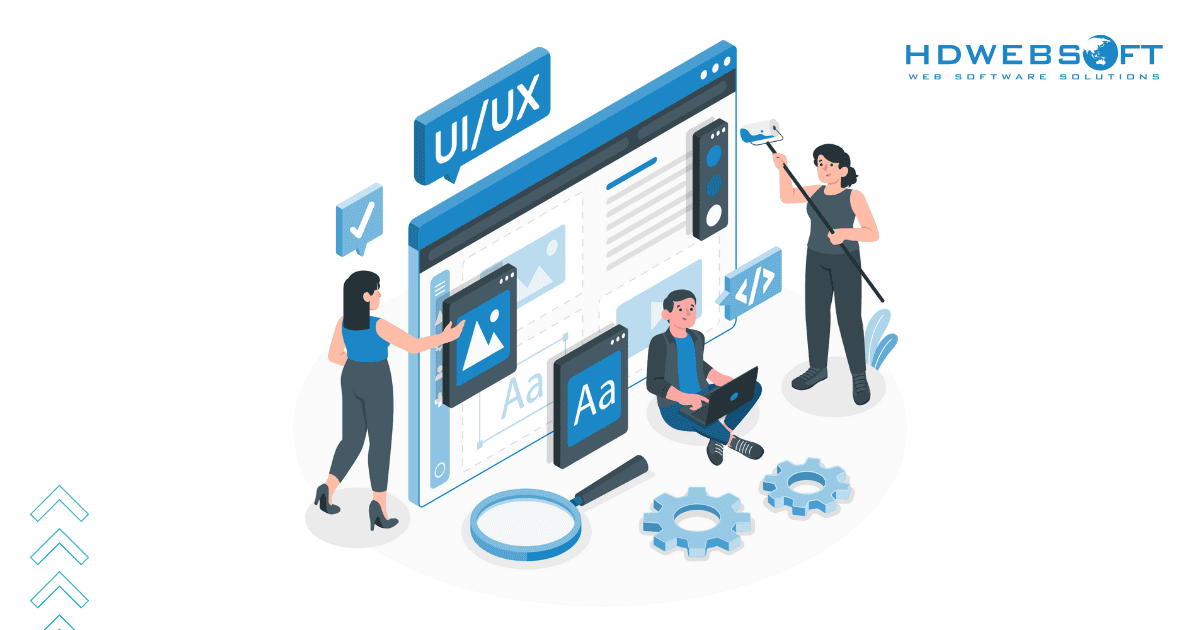
FYI, the complex your UI/UX requirements are, the more expensive your custom app development cost will be.
Cross-Platform App Development
Building an app for multiple platforms can be more expensive than focusing on a single platform. However, it ensures a broader reach and a consistent user experience.
Data Usage and Storage
Applications that depend on large-scale data storage or real-time synchronization tend to require a more substantial investment. This is because such apps involve significant infrastructure and data management needs. Additionally, when cloud-based services such as MLaaS are incorporated, the costs can increase further.
In the context of custom app development, these factors are essential to consider, as tailored solutions may amplify these requirements based on specific business needs.
IT Staffing
Hiring experienced developers, designers, and quality assurance specialists is essential for the success of any custom app development project. However, this also significantly impacts overall costs. These professionals bring expertise and efficiency, ensuring the project is executed smoothly and meets high standards. Notwithstanding, the more experienced the team, the higher the compensation typically is, directly affecting the budget.
In addition, the size of the team plays a critical role. As the scope of the project increases, the need for a larger, more specialized team becomes evident. The bigger the project, the more diverse the skill set required. In short, it leads to an increase in the number of team members needed.
Ongoing Maintenance and Support Costs
Post-launch, apps require regular updates, bug fixes, and support to ensure optimal performance. In the case of custom app development, factoring in these ongoing costs is crucial for a long-term budget. This is because custom solutions often demand continuous maintenance and enhancements to stay aligned with evolving business needs.
How Long Does It Take to Build a Custom Application?
The timeline for custom software development depends on the project’s complexity, size, and scope. Here’s a breakdown of the typical stages and their respective durations:
Timeline for Each Stage
- Discovery and requirement gathering often takes 2-4 weeks. This phase involves understanding the app’s purpose, defining features, and creating a project roadmap.
- The design phase usually lasts 4-6 weeks. UI/UX designers work to craft wireframes and prototypes, ensuring an effortless user experience.
- The development phase will take around 8-20 weeks. The core functionality is coded, features are integrated, and the app begins to take shape.
- Testing and Quality Assurance take 2-4 weeks. Various types of testing are conducted to ensure your custom app development is free from bugs and functions as intended across platforms. For instance, benchmarking is performed to assess the app’s performance, ensuring it meets predefined standards and delivers optimal user experience.
- Deployment and Launch will take 1-2 weeks. The final stage includes deploying the app to app stores or live environments.
Project Complexity
- Simple Applications: 3-4 months. This includes apps with basic features, minimal integrations, and a single platform focus.
- Moderately Complex Applications: 4-8 months. In particular, apps with multiple features, integrations, and cross-platform capabilities fall into this category.
- Highly Complex Applications: 8+ months. Enterprise-level apps with advanced functionalities, robust backends, and heavy data processing.
Best Practices for Custom App Development
Developing a successful application requires more than technical expertise. It demands a thoughtful approach that aligns with user expectations, business goals, and industry standards. Let’s explore the key strategies that can lead to a thriving application.
Listen to the Users
User feedback is a cornerstone of effective custom app development. By actively seeking input from your target audience, you can better identify their needs, preferences, and pain points. Furthermore, this feedback serves as a valuable guide for the development team, helping them create an app that resonates with its users.
Including users in the testing process also ensures that the app’s features and functionality align with their expectations. In this case, leveraging BDD testing is a wise choice. This is because this type of testing encourages the creation of scenarios that focus on user behaviors. Ultimately, it’s easier to identify any potential gaps or issues before the app is fully launched.
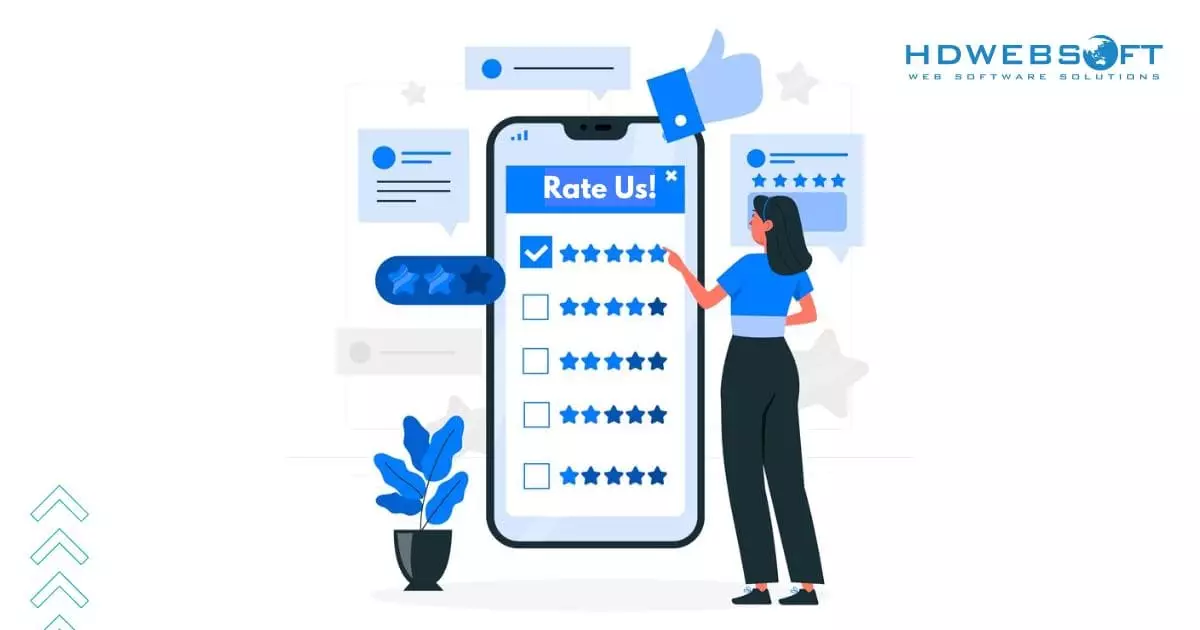
The end users will be the ones using your app; make sure to ask for their opinion, either by deploying MVPs or the beta version.
Embrace Continuous Improvement
A successful app isn’t a one-time project; it’s a continuous journey. Regular updates based on user feedback, industry trends, and technological advancements keep the app relevant and competitive.
Whether it’s improving performance, adding new features, or fixing bugs, maintaining a culture of continuous enhancement is essential. This approach ensures that your custom app development solution stays ahead of the curve and continues to deliver value over time.
Leverage Competitive Technologies
Using cutting-edge and latest technologies ensures that your custom app is both efficient and future-proof. Whether it’s implementing artificial intelligence for personalization, integrating IoT capabilities, or adopting robust frameworks, leveraging the right tools and innovations enhances the app’s performance and functionality. Staying updated on emerging trends and best practices in technology helps position your app as a leader in its category.
Prioritize Cross-Platform Compatibility
Today’s users access apps on a variety of devices and platforms, from smartphones and tablets to desktops. For custom app development, ensuring that the application works seamlessly across platforms is critical.
Following this principle not only broadens your app’s reach but also ensures that users have a consistent experience. Additionally, it provides a satisfying experience, regardless of how they interact with the app.
Safeguard Customer Data
With growing concerns about data privacy and cybersecurity, protecting user information has never been more important. Strong security protocols from the outset are non-negotiable for building an app.
There are many ways you can secure your customer data and build trust with your users. To begin, you can employ encryption, multi-factor authentication, and regular vulnerability assessments. Moreover, ensuring compliance with industry regulations will further demonstrate your commitment to safeguarding sensitive information, reinforcing trust with your users.
What Makes a Custom App Successful
Several critical factors must be addressed to ensure success with custom app development. These go far beyond basic functionality. Let’s explore the key areas to focus on!
Marketing
Effective marketing is essential to connect with your target audience. If you’re catering to a luxury market, an iOS-based app may be the ideal choice to drive sales and revenue.
Strategic marketing ensures your app reaches the right consumers while aligning with their specific needs. After all, even a well-designed custom app can fall short without proper platform targeting and outreach to its intended audience.
User-Centricity
Prioritizing user-centric design is vital for retaining users and encouraging repeat engagement. A custom app should feature an intuitive layout along with a smooth UX/UI that follows natural interaction patterns. Plus, meeting user expectations in terms of usability makes your app easy to navigate and enjoyable to use.
Additionally, incorporating support features, such as live chat for instant assistance, can further enhance the user experience. Accessibility options, like voice-guided navigation, are equally important, especially as virtual assistants become increasingly popular.
Product
The custom software itself represents the culmination of all these elements. High-quality custom app development services should aim to address user problems efficiently. Particularly, features like fast load times and stable performance are non-negotiable for a successful app.
Furthermore, advanced tools such as data analytics and business intelligence are increasingly critical. These technologies allow you to derive actionable insights, enabling continuous improvement. Integrating custom analytics applications also helps you track software performance, providing real-time data for informed decision-making.
To further refine your app, implement user acceptance testing and collect feedback from beta testers. These processes ensure your app is polished before its full release, enhancing its chances of long-term success.
Finally, it’s essential that the app aligns with the KPIs set during the initial planning phase. By adhering to these metrics, you can deliver a product that satisfies both business objectives and user expectations.
Conclusion
In an era where digital solutions are integral to business success, custom app development offers a pathway to create applications that are perfectly aligned with organizational needs. With all these characteristics it offers, custom applications empower businesses to navigate the complexities of the modern market effectively. As the demand for personalized solutions continues to rise, investing in custom app development becomes not just a choice but a strategic imperative for forward-thinking enterprises.




